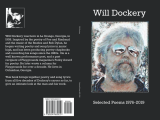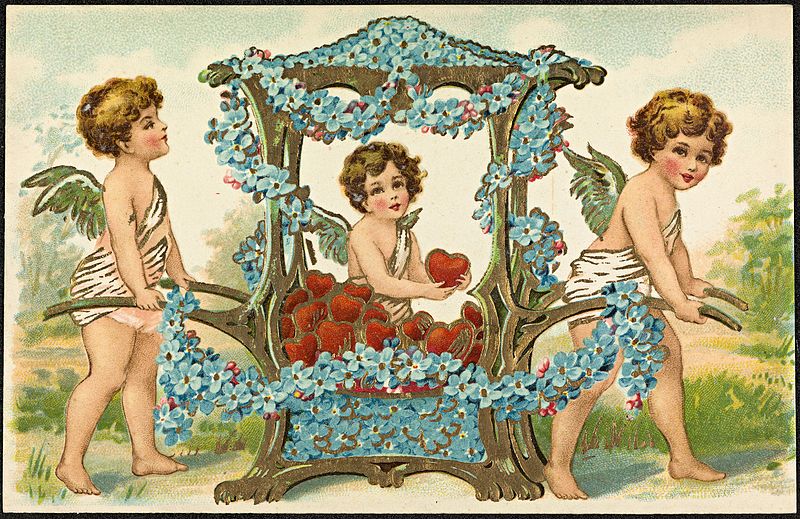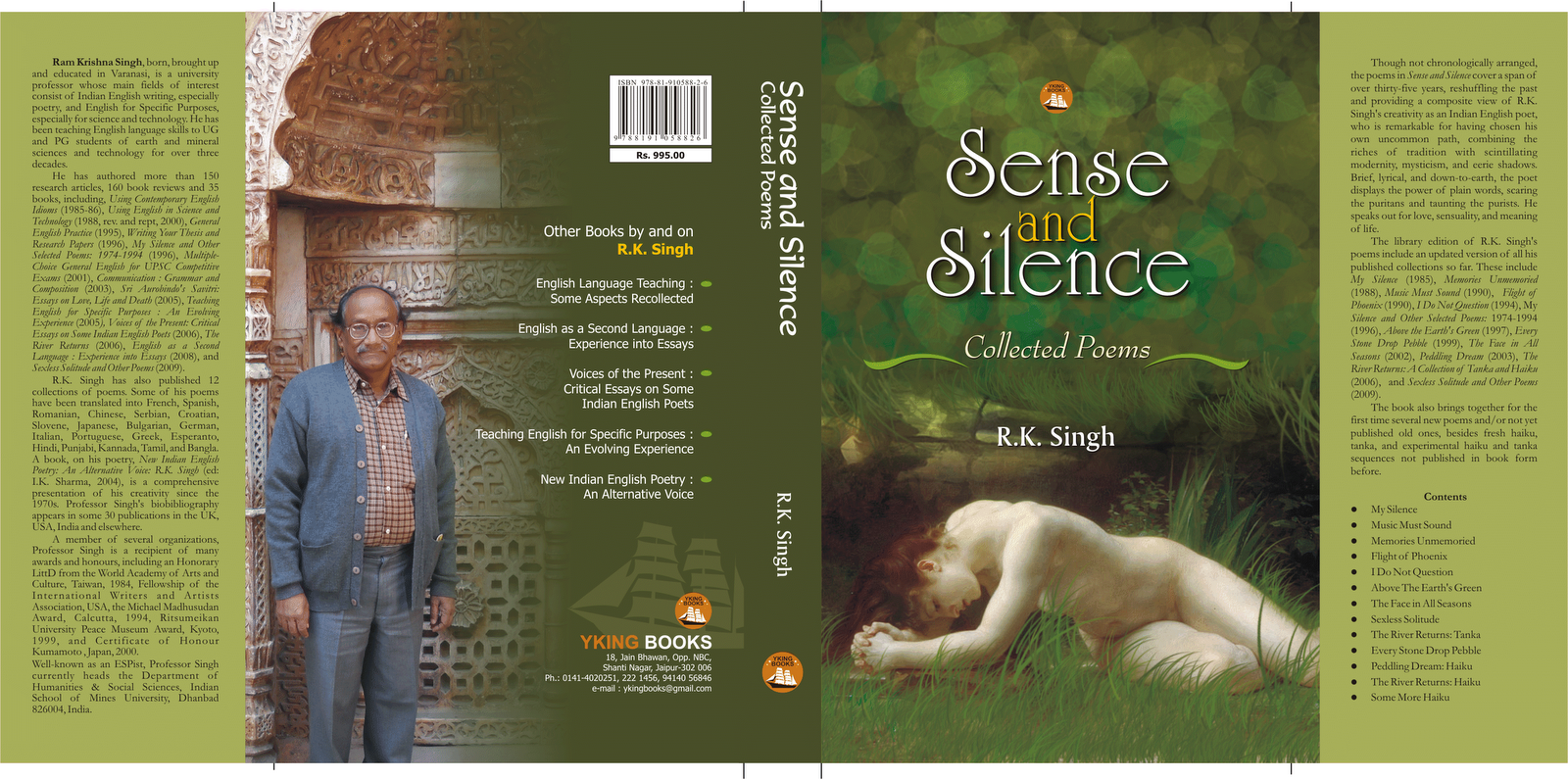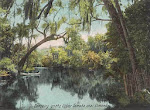August
Harvest approaches with its busy day;
The wheat tans brown, and barley bleaches grey;
In yellow garb the oatland intervenes,
And tawny glooms the valley throng’d with beans.
Silent the village grows,—wood-wandering dreams
Seem not so lonely as its quiet seems;
Doors are shut up as on a winter’s day,
And not a child about them lies at play;
The dust that winnows ’neath the breeze’s feet
Is all that stirs about the silent street:
Fancy might think that desert-spreading Fear
Had whisper’d terrors into Quiet’s ear,
Or plundering armies past the place had come
And drove the lost inhabitants from home.
The fields now claim them, where a motley crew
Of old and young their daily tasks pursue.
The reapers leave their rest before the sun,
And gleaners follow in the toils begun
To pick the litter’d ear the reaper leaves,
And glean in open fields among the sheaves.
The ruddy child, nursed in the lap of Care,
In Toil’s rude strife to do its little share,
Beside its mother poddles o’er the land,
Sunburnt, and stooping with a weary hand,
Picking its tiny glean of corn or wheat,
While crackling stubbles wound its little feet;
Full glad it often is to sit awhile
Upon a smooth green bank to ease its toil,
And fain would spend an idle hour in play
With insects, strangers to the moiling day,
Creeping about each rush and grassy stem,
And often wishes it were one of them:
Meanwhile the expecting mother stops to tie
Her handful up, and, waiting his supply,
Misses the idle younker from her side;
Then shouts of rods, and morts of threats beside
Picture harsh truths in his unpractised breast,—
How they, who idle in the harvest rest,
Shall well-deserving in the winter pine,
Or hunt the hedges with the birds and swine.
In vain he wishes that the rushes’ height
Were tall as trees to hide him from her sight.
Leaving his pleasant seat, he sighs and rubs
His legs, and shows scratch’d wounds from piercing stubs,
To make excuse for play; but she disdains
His little wounds, and smiles while he complains;
And as he stoops adown in troubles sore,
She sees his grief, and bids him mourn no more,
For by and by, on the next Sabbath-day,
He shall have well-earn’d pence as well as play,
When he may buy, almost without a stint,
Sweet candied horehound, cakes, and peppermint,
At the gay shop, within whose window lie
Things of all sorts to tempt his eager eye:
Rich sugar-plums in phials shining bright,
In every hue, young fancies to delight;
Coaches and ladies of gilt gingerbread;
And downy plums, and apples streak’d with red.
Such promises all sorrow soon displace,
And smiles are instant kindled in his face;
Scorning the troubles which he felt before,
He picks the trailing ears, and mourns no more.
The fields are all alive with sultry noise
Of labour’s sounds, and insects’ busy joys.
The reapers o’er their glittering sickles stoop,
Startling full oft the partridge coveys up;
Some o’er the rustling scythe go bending on;
And shockers follow where their toils have gone,
Heaping the swaths that rustle in the sun,
Where mice from Terror’s dangers nimbly run,
Leaving their tender young in fear’s alarm
Lapt up in nests of chimbled grasses warm,
Hoping for safety from their flight in vain;
While the rude boy, or churlish-hearted swain,
Pursues with lifted weapons o’er the ground,
And spreads an instant murder all around.
In vain the anxious maiden’s tender prayer
Urges the clown their little lives to spare;
She sighs, while trailing the long rake along,
At scenes so cruel, and forgets her song.
When the Sun stoops to meet the western sky,
And Noon’s hot hours have wander’d weary by,
Seeking a hawthorn bush or willow-tree
For resting-places that the coolest be,
Where baskets heaped and unbroached bottles lie,
Which dogs in absence watch’d with wary eye,
They catch their breath awhile, and share the boon
Which bevering-time allows their toil at noon.
Next to her favour’d swain the maiden steals,
Blushing at kindness which his love reveals;
Making a seat for her of sheaves around,
He drops beside her on the naked ground.
Then from its cool retreat the beer they bring,
And hand the stout-hoop’d bottle round the ring.
Each swain soaks hard; the maiden, ere she sips,
Shrieks at the bold wasp settling on her lips,
That seems determined only her’s to greet,
As if it fancied they were cherries sweet!
The dog foregoes his sleep awhile, or play,
Springing at frogs that rustling jump away,
To watch each morsel carelessness bestows,
Or wait the bone or crust the shepherd throws;
For shepherds are no more of ease possest,
But share in harvest-labours with the rest.
When day declines and others meet repose,
The bawling boy his evening journey goes;
At toil’s unwearied call the first and last,
He drives his horses to their night’s repast,
In dewy close or meadow to sojourn;
And often ventures, on his still return,
O’er garden pales, or orchard walls, to hie,
When sleep’s safe key hath lock’d up danger’s eye,
All but the mastiff watching in the dark,
Who snuffs and knows him, and forbears to bark.
With fearful haste he climbs each loaded tree,
And picks for prizes, that the ripest be;
While the pale moon, creeping with jealous light,
Fills empty shadows with the power to fright;
And, from the barn-hole, pops and hurries by,
The grey owl, screaming with a fearful cry;—
He hears the noise, and, hastening to escape,
Thinks each thing grows around a dismal shape.
Quick tumbling o’er the mossy mould’ring wall,
He loses half his booty in the fall;
Where, soon as ever Morning opes its eyes,
The restless hogs will happen on the prize,
And crump adown the mellow and the green,
Making all seem as nothing e’er had been.
Amid the broils of harvest’s weary reign,
How sweet the Sabbath wakes its rest again!
And on each weary mind what rapture dwells,
To hear once more the pleasant chiming bells,
That from each steeple, peeping here and there,
Murmur a soothing lullaby to care.
The shepherd, journeying on his morning rounds,
Pauses awhile to hear the pleasing sounds,
While the glad children, free from toil’s employ,
Mimic the "ding dong" hums, and laugh for joy.
The fields themselves seem happy to be free,
Where insects chatter with unusual glee;
While Solitude, the grass and stubs among,
Appears to muse and listen to the song.
In quiet peace awakes the welcome morn;
Men tired, and children with their gleaning worn,
Weary and stiff, lie round doors all day,
To rest themselves, with little heart for play.
In calm delight the Sabbath wears along;
Yet round the Cross, at noon, a tempted throng
Of little younkers, with their pence, repair
To buy the downy plum and luscious pear
That melts i’ th’ mouth, which gardeners never fail,
For gain’s strong impulse, to expose for sale;
Placed on the circling Cross-steps in the sun,
What time the parson has his sermon done.
There, soon the boy his sore-earn’d penny spends;
And he the while, that pennyless attends,
In sullen, silent mood, approaching nigh,
Full often drops a keen, desiring eye
Upon each loaded basket, to perceive
What makes his little fingers itch to thieve;—
But, close at hand, the stocks in terror shine,
And temptings strong, to stronger fears resign.
Thus Sunday’s leisure passes swiftly by
In rest, soft peace, and home-tranquility,
Till Monday morning doth its cares pursue,
Rousing the harvest’s busy toils anew.
~~
John Clare
from The Shepherd's Calendar, 1827
[
Poem is in the public domain worldwide]
Read The Shepherd's Calendar complete
John Clare biography

















